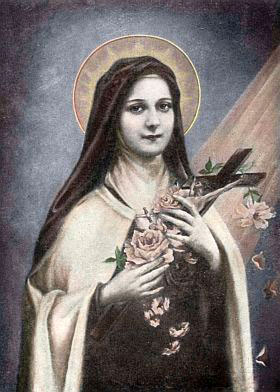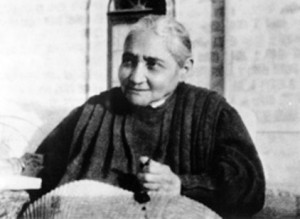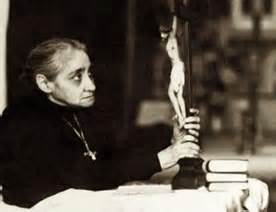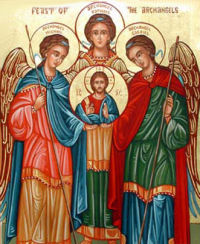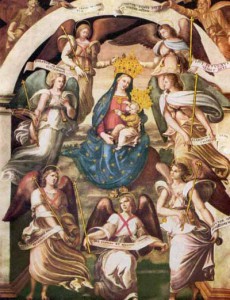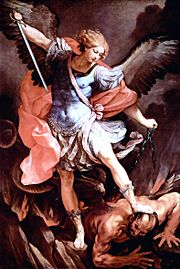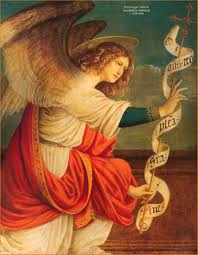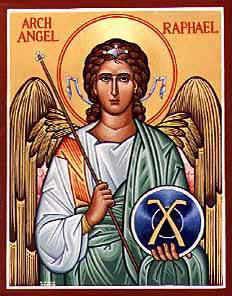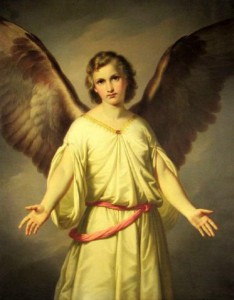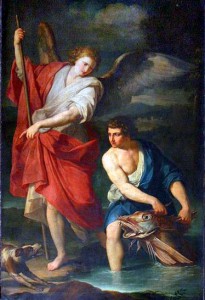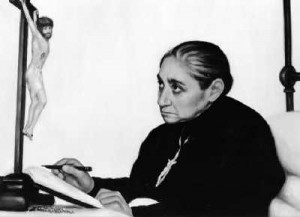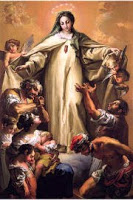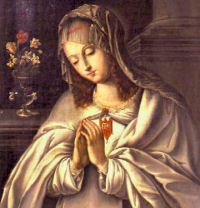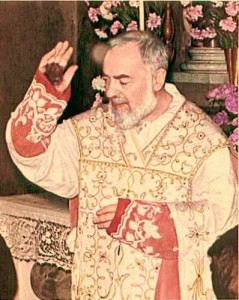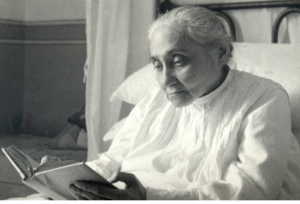The Fifth Marian Dogma: The Church’s Unused Weapon
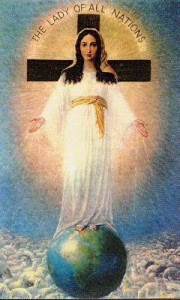
by Dr. Mark Miravalle and Richard L Russell on September 24, 2013
Pope Francis will be welcoming the Our Lady of Fatima statue from Portugal to the Vatican next month. He plans to use the occasion to consecrate the world in to the Immaculate Heart of Mary—as Pope John Paul II had done in 1984 and 2000—just as the Blessed Mother had requested in her 1917 apparition to three shepherd children at Fatima, Portugal in order to foster world peace. Indeed, with the crises in Syria and Egypt boiling and threatening to spillover to neighboring states, the looming crisis over Iran’s suspected nuclear weapons program, and Russia’s growing anti-western foreign policy stance and a more assertive role in the rapidly deteriorating Middle East, Pope Frances’ consecration to Our Lady of Fatima is urgently needed.
While the Marian apparition at Fatima is widely and rightly acknowledged among Catholics for its heavenly offer of assistance to humanity, another and more recent apparition with an offer of another mighty weapon for the Church’s spiritual arsenal goes unused. Just as the Fatima apparitions occurred at the closing stages of World War I, other and just as significant apparitions occurred at the ending of World War II in Amsterdam, The Netherlands. Those apparitions had even more to say about the future of international politics than those at Fatima and were given by the Blessed Mother in some 56 appearances to a humble Dutch woman from 1945 to 1959. The apparitions after investigation and discernment were courageously declared in 2002 by the bishop of Amsterdam, Jozef Marianus Punt, as worthy of belief. Tragically, Bishop Punt’s declaration has been largely ignored by much of the Church hierarchy and the faithful.
The Blessed Mother in the Amsterdam apparitions called herself “The Lady of All Nations” and warned of a coming age of “degeneration, disaster, and war.” But she offered help if Catholics would petition the Holy Father to proclaim the fifth and final Marian dogma with Mary as “advocate, mediatrix, and co-redemptrix.” That proclamation would be the capstone of the Church’s four “dogmas” or solemnly pronounced doctrines about the Virgin Mary. First, Mary is the Mother of God (Council of Ephesus, 431). Second, she is a Perpetual Virgin (Lateran Council, 649). Third, Mary was conceived without original sin, or her “Immaculate Conception” (Bl. Pius IX, 1854). And fourth, Mary was assumed body and soul into heaven, or her “Assumption” (Pius XII, 1950).
The Lady of All Nations promised that the proclamation of the fifth and final Marian dogma would bring about a descent of the Holy Spirit in a fashion akin to the Pentecost and the founding of the Holy Catholic Church after Christ’s Ascension from earth to heaven. To prepare the world for this mysterious new Pentecost, the Lady of All Nations asked the faithful to share the image of her apparition in Amsterdam and to daily recite a short prayer:
Lord Jesus Christ, Son of the Father, send now your Spirit over the earth. Let the Holy Spirit live in the hearts of all nations, that they may be preserved from degeneration, disaster, and war. May the Lady of All Nations, the Blessed Virgin Mary, be our Advocate. Amen.
When one takes a glance at the world stage today, one sees the world in a state of degeneration, disaster, and war just as the Lady of All Nations had warned in Amsterdam decades ago. She revealed, for example, that the world’s climate would drastically change long before anyone ever uttered the words “climate change” as we commonly do today. Climate change is now on pace to happen 10 times faster than any change recorded in the past 65 million years, according to a team of Stanford University professors. Meanwhile, societies are crumbling, economies are failing such as the European Union’s monetary experiment, political chaos and violence are increasing, especially in the Middle East where Syria has used chemical weapons against civilians, all of which seems to be tearing the world apart. Social scientists have impressively harnessed information technology to graphically show the growing frequency and intensity of turmoil, protests, and violence since 1979 in the world. All of these events conform to the warnings of those given by the Lady of All Nations in Amsterdam to prove the authenticity of the apparitions there.
With the world’s descent into political, military, economic, environmental, and societal chaos, it behooves Catholics to contemplate the fifth Marian dogma as an unused weapon in the Church’s arsenal. The popes of Catholic Church, based on scripture and tradition, have officially taught over the course of centuries that the Virgin Mary, Mother of Jesus, is also the Spiritual Mother of All Peoples. Mary performs this role as spiritual mother to humanity in three basic ways: as advocate, mediatrix, and co-redemptrix.
Our Lady’s role as advocate simply confirms that this mother intercedes for our wants and needs with a maternal perseverance and power beyond that of any of the other saints. Mary brings the needs of mankind to the throne of Christ. She is the principal intercessor on behalf of her earthly children, and as queen, she has the greatest possible intercessory power to Jesus, the king of the kingdom of God, for humanity’s needs. In the Old Testament, the queen mother of the king had the greatest power of intercession to her son, the king in the line of David, on behalf of the Jewish people. In the New Testament, Mary is the new queen mother who gives birth to the “king of kings,” and is crowned as the queen and advocate in the kingdom of God to become the greatest intercessor for the people of God to Christ the King. For this role of interceding for humanity, Mary is called the “advocate,” her most ancient title, dating back to the 2nd Century.
Mary is the mediatrix for humanity who spiritually nourishes her earthly children by dispensing the graces of salvation. At the Wedding of Cana, Mary interceded to bring the graces of Jesus to all of humanity. She “mediated” or interceded to bring Jesus himself, the source of all graces, into the world. Mary too was appointed by Jesus himself at the climax of his redeeming sacrifice on the cross to become the spiritual mother of all peoples and to dispense to humanity heavenly graces when he said to Mary, “Behold, your son.” Jesus then told John, and all those who seek to become beloved disciples of Jesus, to “behold your Mother.” For these roles in dispensing the saving graces of Jesus to her earthly children, Mary is called the “mediatrix of all graces.” As Bl. John Paul II explained, “mediatrix is implicit in the term, mother.” The papal Magisterium of the last two centuries has consistently taught this Marian role as mediatrix of all graces, and Pope Benedict XVI Emeritus published this same title on 11 February 2013, the day he announced his resignation.
Some readers at first glance of the proposed fifth dogma would understandably baulk at the concept of Mary as “co-redemptrix.” They might object that Mary was human while only her divine son Jesus could redeem humanity with his crucifixion. But taking a deeper look at the proposed dogma, one sees that it reinforces—and does not contradict— Church beliefs and teachings. Mary uniquely shared in the work of Jesus to redeem the human family, both by giving Jesus his body, the very instrument of redemption, and by suffering with Him at Calvary in a way unparalleled by another other creature. For this extraordinary role with Jesus in saving souls, Mary has been called the “co-redemptrix” in the Church since the 14th century. The prefix “co” means “with,” not “equal.” It must be stressed that Mary is not a goddess on a level or equality with Jesus, but rather she is the unique immaculate human co-redeemer with Jesus, just as every Christian is called to be a “co-redeemer in Christ,” as Bl. John Paul II was fond of saying.
It is clear then that the recognition of the Blessed Mother as advocate, mediatrix, and co-redemptrix, has a long tradition in the Church even if it has not yet been proclaimed dogma. Likewise, the petitioning of the Holy Father for the declaration of dogma is a Church tradition. Petition drives for Marian dogmas are simply Catholic precedence. They are not democratic power plays seeking to force the Pope’s hand. Instead, petition drives are to be seen as manifestations of the sensus fidelium (the “common consensus of the faithful”) in encouraging the Holy Father to a particular course of action which the faithful discern to be for the good of the Church.
Authentic Catholic petition drives must be a request of something that conforms to the faith and moral teachings of the Church and must be submitted with an unconditional obedience to the ultimate discernment and decision of the Vicar of Christ. The Marian dogmas of her Immaculate Conception and her Assumption, for example, were solemnly proclaimed only after a lengthy petition drive from the Catholic faithful to the Holy Father. Before the papal definition of the Immaculate Conception by Blessed Pius IX in 1854, millions of petitions from the Catholic world were sent to the Vatican, with particular perseverance coming from Spain and its Catholic government. In the case of the Assumption, infallibly declared by Pius XII in 1950, over 8 million petitions spanning 95 years were documented by the Holy Office in support of this Marian dogma.
History shows that graces have been poured on the Church after Marian dogmas are proclaimed. The historic situation of the papacy and the Church was bleak, for example, just before the proclamation of the Immaculate Conception. Pope Pius IX had been chased out of the Vatican by Masonic forces from southern Italy. While in exile in Gaeta, two cardinals approached the beleaguered Holy Father with the remedy to this dire situation: proclaim the dogma of the Immaculate Conception. Pius IX acquiesced to their request and from exile wrote to the world’s bishops to state his intention to proclaim the new Marian dogma. The dogma was proclaimed, the papacy was restored, the Vatican and Church were secured, and the Marian dogma of the Immaculate Conception was subsequently declared infallible by the Holy Father.
The proclamation of the fifth Marian dogma would satisfy God’s condition of never forcing grace upon us. The Holy Father’s free acknowledgement and solemn announcement of Mary’s roles as advocate, mediatrix, and co-redemptrix would allow her to fully enact these motherly roles of intercession on behalf of humanity. Since Mary’s motherly titles also are her motherly functions of grace for the Church, the more solemnly we acknowledge these motherly roles, the more powerfully she can exercise them. If these roles were to be infallibly proclaimed by the Holy Father as the highest authority of the world, this proclamation would inextricably lead to the fullest possible release of heavenly graces through our Blessed Mother.
The proclamation of the dogma of Mary “Advocate, Mediatrix, and Co-redemptrix” by the Holy Father would enable the Mother of Jesus to shower the world with a historic outpouring of grace, redemption, and peace in a new and dynamic way—an event which Marian apparitions like Fatima refer to as the “Triumph of the Immaculate Heart of Mary.” Pope Francis has been on a blessed tirade of Marian teaching and witness starting with his very first papal act going to St. Mary Major’s Basilica in Rome to thank and honor Our Lady, to his return visit there in early Mary, and to his request to have his papacy consecrated to Our Lady of Fatima on 13 May. The Holy Father will be wielding a powerful spiritual weapon in one hand in October when he consecrates in the world to Our Lady of Fatima. We hope and pray that Pope Francis will soon pick up with his other hand the spiritual weapon the Lady of All Nations offered the Church in Amsterdam by proclaiming the fifth and final Marian dogma. The Holy Father and the Holy Catholic Church will need the weapons of both Fatima and Amsterdam to combat the onslaught of evil as evidenced by the world’s heavier, intensifying, and quickening degeneration, disaster, and war.
For further relections on the Virgin Mary, see Professor Miravalle’s Meet Mary, available from Sophia Institute Press
By Dr. Mark Miravalle and Richard L Russell
Dr. Mark Miravalle is Professor of Theology and Mariology at Franciscan University of Steubenville. He is the author of Meet Mary: Getting To Know The Mother of God among numerous other books pertaining to Mariology. Along with his international travels, he has appeared on radio, television, and a number of conferences. Richard L. Russell, a Catholic convert, holds a Ph.D. in Foreign Affairs from the University of Virginia and specializes in foreign policy and international security. He is the author of three books: Sharpening Strategic Intelligence (Cambridge University Press); Weapons Proliferation and War in the Greater Middle East (Routledge); and, George F. Kennan’s Strategic Thought (Praeger).
http://catholicexchange.com/the-fifth-marian-dogma-the-churchs-unused-weapon/#.UkIAby1dhug.email
HOURS OF THE PASSION
24TH Hour – “O Cross, how could You be so cruel with my Son? Ah, You have spared Him nothing! What wrong had He done to You? You have not permitted Me, His sorrowful Mama, to give Him even a sip of water, while He was asking for it; and to His parched mouth You gave gall and vinegar! I felt my pierced Heart melt, and I wanted to offer It to His lips to quench His thirst, but I had the sorrow of seeing Myself rejected. O Cross, cruel, yes, but holy, because divinized and sanctified by contact with my Son!
Turn that cruelty which You used with Him into compassion for miserable mortals; and for the sake of the pains He suffered on You, impetrate grace and strength for the souls who suffer, so that not one of them may be lost because of tribulations and crosses. Souls cost Me too much – they cost Me the life of a Son God; and as Co-Redemptrix and Mother, I bind them to You, O Cross.” And after kissing It over and over again, You leave.
BOOK OF HEAVEN
Volume 17 – May 1, 1925 – In addition to Me, there is my Celestial Mama, who received the unique mission as the Mother of a God Son, and the office of Co-Redemptrix of mankind. For her mission of Divine Maternity, She was enriched with so much grace, that all other creatures combined, both celestial and terrestrial, would never be able to equal Her. But this was not enough to draw the Word into her maternal womb; it was necessary that the Mother put in action all this abyss of graces and gifts, by embracing all creatures, loving them, repairing and adoring the Supreme Majesty for all; in such a way as to accomplish Herself, all that the human generations owed to God. Therefore, in her virginal Heart She had an inexhaustible vein for God and for all creatures. When the Divinity found in this Virgin compensation for the love of all, It felt enraptured, and formed in Her Its Conception – that is, the Incarnation of the Word. And as She conceived Me, She took on the office of Co- Redemptrix, and shared and embraced together with Me, all the pains, the substitutions, the reparations, the maternal love, for all. In the Heart of my Mother there was a fiber of maternal love for each creature. This is why, in truth and with justice, when I was on the Cross, I declared Her Mother of all. She ran together with Me in the love, in the sufferings – in everything; She never left Me alone. If the Eternal One had not placed so much grace in Her as to be able to receive, alone, the love of all – He would never have moved from Heaven to come down upon earth and redeem mankind. Here is the necessity, the convenience – that She had to embrace and surpass everything, as befitting the mission of the Mother of the Word.
Volume 20 – January 30, 1927 – “My daughter, there is an immense difference between one who must form a good, a kingdom, and one who must receive it in order to enjoy it. I came upon earth to expiate, to redeem, to save man; and in order to do this I had to receive the pains of creatures, and take them upon Myself as if they were My own. My Divine Mama, who was to be Co-Redemptrix, was not to be dissimilar from Me; rather, the five drops of blood that She gave Me from Her most pure Heart in order to form My little Humanity, came out of Her crucified Heart. For Us the pains were offices that We came to fulfill, therefore they were all voluntary pains, not impositions of a fragile nature.
“However, you must know that in spite of so many pains of Ours, that We had in order to carry out Our office, highest happiness, unending and ever new joys, continuous paradise, were inseparable from Me and from My Queen Mother. It was easier for Us to separate from Our pains—because they were not things intrinsic to Us, things of nature, but things of office—than to separate from the sea of the immense happinesses and joys that the nature of Our Divine Will, that We possessed, produced in Us as things that were Our own and intrinsic to Us.
“Just as the nature of the sun is to give light, and that of water to quench one’s thirst, that of fire to warm and to turn everything into fire—and if they did not do so, they would lose their nature—so it is the nature of My Will to make happiness, joy and paradise arise, wherever It reigns. Will of God and unhappiness does not exist, nor can exist; or, Its complete fullness does not exist, and this is why the rivulets of the human will form bitternesses for the poor creature. For Us, because the human will had no access into Us, happiness was always at its peak, the seas of joys were inseparable from Us. Even when I was on the Cross, and My Mama was crucified at My Divine feet, perfect happiness never disassociated from Us; and if this could happen, I would have had to go out of the Divine Will, disassociate Myself from the Divine nature, and act only with the human will and nature.
“Therefore, Our pains were all voluntary, chosen by Our very Selves as the office that We came to fulfill—they were not fruits of the human nature, of fragility, or of the imposition of a degraded nature.
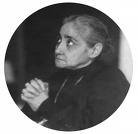
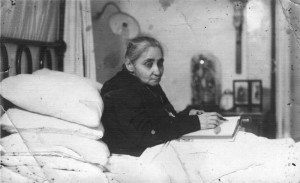 Having received Communion I felt all transformed in blessed Jesus, and I said to myself: ‘How can one maintain this transformation with Jesus?’ And in my interior it seemed that Jesus was saying: “My daughter, if you want to be always transformed in Me – even more, to be one single thing with Me – love Me always and you will maintain your transformation with Me. In fact, love is fire, and whatever woods are thrown into the fire, small or big, green or dry, they all take the form of fire and convert into fire itself; and after these woods have been burned, one can no longer discern which wood was one and which another, neither the green one nor the dry one – one can see nothing but fire. The same when the soul never ceases to love Me. Love is fire that transmutes the soul in God; love unites, its flames invest all of the human operations and give them the form of the divine operations.”
Having received Communion I felt all transformed in blessed Jesus, and I said to myself: ‘How can one maintain this transformation with Jesus?’ And in my interior it seemed that Jesus was saying: “My daughter, if you want to be always transformed in Me – even more, to be one single thing with Me – love Me always and you will maintain your transformation with Me. In fact, love is fire, and whatever woods are thrown into the fire, small or big, green or dry, they all take the form of fire and convert into fire itself; and after these woods have been burned, one can no longer discern which wood was one and which another, neither the green one nor the dry one – one can see nothing but fire. The same when the soul never ceases to love Me. Love is fire that transmutes the soul in God; love unites, its flames invest all of the human operations and give them the form of the divine operations.”
